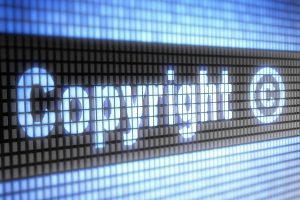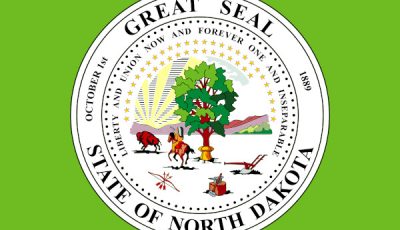Social Media and Copyright Law: Three Cases to Watch
 It has often been observed that the law struggles to keep up with the advance of technology. Arguably, there’s no intersection of law and technology where this axiom is more on the mark than when it is applied to the interplay between copyright law and social media.
It has often been observed that the law struggles to keep up with the advance of technology. Arguably, there’s no intersection of law and technology where this axiom is more on the mark than when it is applied to the interplay between copyright law and social media.
All the same challenges which the internet has presented to intellectual property jurisprudence since the advent of the commercial web have only been exacerbated by the explosion of social media use in recent years. After all, in the early days of the web, a relatively small percentage of people using the internet were actively publishing content thereon compared to now, when every person who holds a social media account effectively serves as his or her own publisher.
For those interested in the ongoing tug of war between the enforcement of intellectual property law and the far more freewheeling behavior of social media users, below are three cases on which to keep an eye. Only one directly involves social media, but the other two have significant and broad copyright-related implications which could impact how social media users use online content – as well as whether they can be sued for their use of the content, and if so, by whom.
Goldman v. Breitbart
In February, when Judge Katherine Forrest issued a ruling in this case finding that the defendant media outlets had violated photographer Justin Goldman’s exclusive right to display his work by embedding tweets which included one of his photos, some corners of the legal community pounced on the ruling as potentially ruinous to the very internet itself.
“Federal Judge Ruined the Internet Yesterday” read the headline to a piece penned by Joe Patrice for AboveTheLaw.com.
The consternation over Forrest’s ruling centered on the fact it rejected the “server test” standard established in Perfect 10 v. Amazon. It’s a bit of an oversimplification, but the test is generally understood to mean one can’t be held liable for copyright violation for simply linking to an infringing work, as opposed to storing the work on one’s own server.
“The plain language of the Copyright Act, the legislative history undergirding its enactment, and subsequent Supreme Court jurisprudence provide no basis for a rule that allows the physical location or possession of an image to determine who may or may not have ‘displayed’ a work within the meaning of the Copyright Act,” Forrest wrote in her decision.
What a lot of observers have not noted is the next sentence of Forrest’s ruling, or other statements in the decision which make clear the judge doesn’t think her ruling is the end of social media (or the internet itself) as we know it.
“Moreover, the Court agrees that there are critical factual distinctions between Perfect 10 and this case such that, even if the Second Circuit were to find the Server Test consistent with the Copyright Act, it would be inapplicable here,” Forrest added.
The case is currently stayed pending an interlocutory appeal on Forrest’s ruling, which addressed only the right to display aspect of the case. The judge also hasn’t reached the defendants’ fair use arguments yet, so regardless of how the interlocutory appeal plays out, this one is far from over.
Fourth Estate Public Benefit Corp. v. Wall-Street.com
This case has just been granted certiorari by the U.S. Supreme Court, which immediately marks it as a case of significance. Whatever the court decides, it’s likely to resolve a split in how different judicial circuits have approached the questions of when a copyright holder may sue in federal court.
Some courts have allowed rightsholders to proceed with their copyright complaints while their applications are still being processed by the Copyright Office, while other courts have ruled the law requires applicants to wait until after the Copyright Office has approved or rejected the application before they can file their lawsuit.
In an amicus brief encouraging the Supreme Court to take the case, the Office of the U.S. Solicitor General made its position quite clear.
“The text, structure, and history of the Copyright Act confirm that the Register must have acted on an application for copyright registration—either by approving or refusing registration—before the copyright owner may institute a copyright-infringement suit,” the Office stated in its brief. “Petitioner’s contrary arguments are unavailing.”
Dynamex Operations West v. Superior Court of Los Angeles
While already decided and not an intellectual property case, the California Supreme Court ruling in Dynamex Operations West v. Superior Court of Los Angeles has potentially substantial implications for future copyright cases which involve an employer/worker dispute over who owns the copyright to the work at issue in the case. In turn, that determination would define who a social media user would be sued by, should they be alleged to have infringed on the copyright in question.
In its decision rendered in April, the court established a new standard for determining whether a worker is considered an independent contractor or an employee.
“Under this test,” the court wrote, “a worker is properly considered an independent contractor to whom a wage order does not apply only if the hiring entity establishes: (A) that the worker is free from the control and direction of the hirer in connection with the performance of their work, both under the contract for the performance of such work and in fact; (B) that the worker performs work that is outside the usual course of the hiring entity’s business; and (C) that the worker is customarily engaged in an independently established trade, occupation, or business of the same nature as the work performed for the hiring entity.
In the “gig economy” age, when a lot of companies look to outside talent to create original works, the question of whether the talent is an employee or independent contractor has huge implications for how the contract between the worker and the company is written.
Michael Poster, a music industry attorney, sees potential for this state ruling to influence federal copyright cases.
“If, under California law, a lot more people are going to be treated as employees rather than as independent contractors, chances are that a lot of their work product that they would have retained a copyright interest in might belong to their employer,” Poster said.
Other observers are skeptical the case will have much influence on the application of federal copyright law.
“When it comes to state law, the California Supreme Court is a leading court on employment law decisions,” said Nathaniel Strauss, an IP law attorney with the Seattle-based firm Karr Tuttle Campbell. “At least in the copyright realm, the federal courts might consider it to be of interest. It might be persuasive, but they’re not going to automatically adopt it.”
For different reasons – some direct and obvious, others nuanced and indirect – each of the cases above has the potential to impact how intellectual property law is applied to the publication, sharing and re-sharing of content on social media. As is always the case, only time will tell how (or even if) they are applied.
It’s also true these cases aren’t even the full tip of the iceberg. For that matter, with the number and variety of copyright, trademark and patent cases filed every year, they’re more like a few prominent inches sticking out of the side of the iceberg’s tip. That said, they’re worth keeping an eye on – if not your own eye, that of the attorney who advises you on intellectual property law issues.
One Comment
Leave a Reply
You must be logged in to post a comment.














Pingback: Social Media and Copyright Law: Three Cases to Watch (YNOT) - Free Speech Coalition